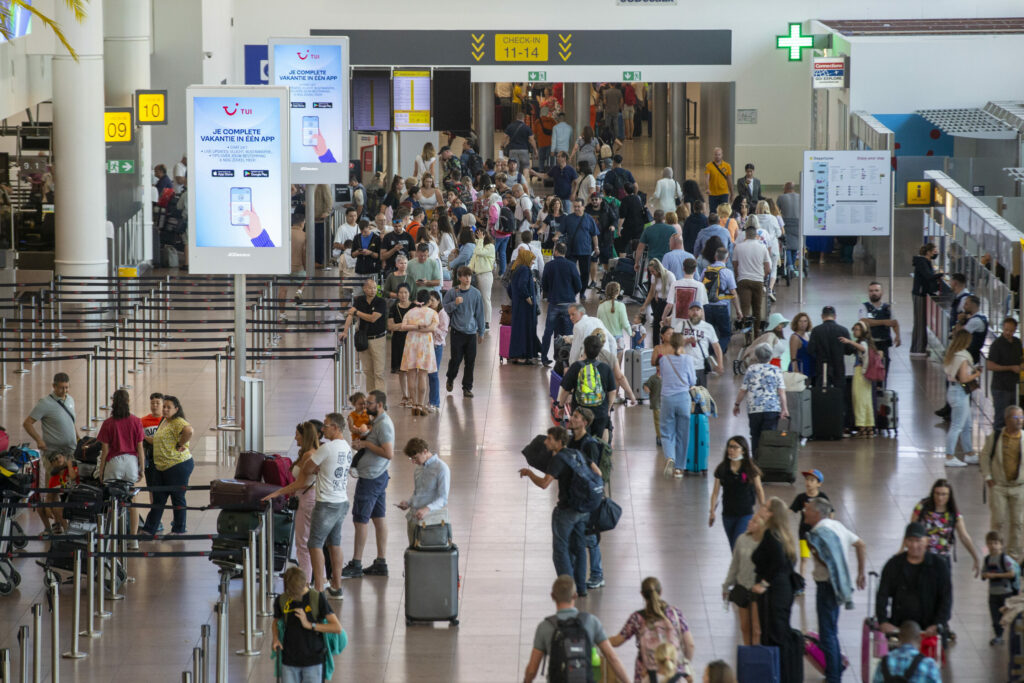A European tax on “frequent flyers”, applicable from the third annual flight onwards, could reduce CO2 emissions from the aviation sector by a fifth and generate billions of euros for climate transition funding, a report from Stay Grounded reveals.
In a report published Thursday, Stay Grounded (a network advocating for reduced air traffic) highlighted the inequity in current aviation taxes that apply equally to all passengers regardless of their flight frequency.
A fairer system would be for frequent flyers to pay more; Stay Grounded proposes a progressive tax starting from the third annual flight. The initial tax would be set at €50 per flight, increasing incrementally to €100, €200, and €400, with additional charges for long-haul flights and business class.
According to Dutch consultancy CE Delft, such a tax could lead to a 25% drop in passenger flights by 2028 and cut aviation-related CO2 emissions by a fifth. It would also generate an additional €51 billion for the European Union compared to existing aviation taxes.
The organisations recommend that these funds be invested primarily in green infrastructure, sustainable transport modes, and a compensation fund for climate-vulnerable countries.
The proposed frequent flyer tax would mostly affect wealthy individuals who travel often, sparing the majority who fly once a year or less.
In Belgium, this tax could reduce passenger traffic by a third and CO2 emissions by 28%, bringing in over €1.6 billion in revenue. Only a third of the population would be impacted.
“While households are making significant climate efforts, the aviation sector contributes little financially to offset its impact,” said Naomi Cambien of Bond Beter Leefmilieu, calling for a complementary kerosene tax.
Stay Grounded sees this tax as “essential” for reducing the sector’s emissions and also advocates banning private jets, reducing regional airports, and investing in railways.

